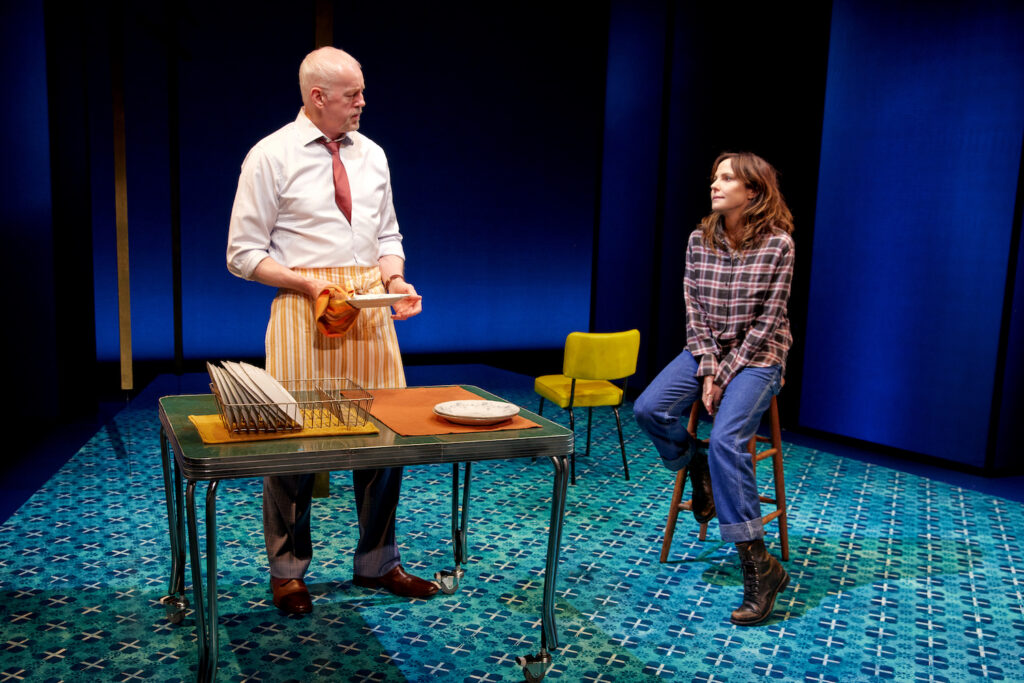By JK Clarke . . .
Twenty five years ago (1997) Paula Vogel’s critically acclaimed and Pulitzer Prize-winning How I Learned to Drive took on the very complicated subject of intra-family sexual abuse. Her approach, which took into account the emotional makeup of the abuser and the possible complicity of the abused, addressed the real complexities of the situation without framing it in a traditional predator/victim dynamic. In the time since the play debuted, so much has happened in the American social sphere that the way one encounters and considers the play may no longer be what Vogel originally had in mind. The same can be said of the play’s cultural counterpart, Vladimir Nabokov’s novel Lolita (1952). Where both works almost sympathetically take into account the antagonists’ background, personality and implied sickness, in a post-MeToo era there is no such consideration acceptable. Abusers are painted broadly with a brush of detestation—no excuses for their actions are allowed.

Now playing through May 29 at the Samuel J. Friedman Theatre, How I Learned to Drive is told primarily from the point of view of Lil Bit (Mary Louise Parker, who originated the role in 1997), a 17-year-old in a suburban Maryland town. She explains that she and a “man old enough to be . . .” are about to have their driving lesson on a warm, summer night. She doesn’t finish saying what he’s old enough to be, but it’s soon clear that the man, her Uncle Peck (David Morse, who also originated his role in 1997), is old enough to be her father. And it’s quickly clear that their relationship is inappropriate, as he inhales the scent of her hair and shortly thereafter asks, “Just let me undo you,” meaning her bra. Their banter is playful, and teasing, but leaning more toward her teasing his desperate desire to touch her. She also has a caring and concerned attitude toward him, getting his assurance that he hasn’t been drinking. It becomes clear that this was once a problem and she has taken it upon herself to help keep him sober.
As the play moves on, we become aware that her home life isn’t exactly healthy, either. Her mother’s advice reveals not a nurturer, but a player, who (among other intrigues) tells her how best to order drinks when with a man in order to make the right impression and stay in control. And her grandfather is a dirty old misogynist whose nickname is rooted in the size of his genitals and who thinks women have no business engaging in higher education—he even mocks Lil Bit’s passion for Shakespeare. This being rural America in the late 1960s, his archaic, sexist attitudes aren’t terribly surprising, but it’s easy to see how they contribute to Lil Bit’s crumbling confidence and sense of self-worth. That she’s sexually entangled with her uncle seems more of a symptom than a cause of her emerging depression and alcoholism.


As the play progresses, a Chorus of three additional actors (who also double as family members) announces scenic and time changes denoted by annoying and generally irrelevant driving metaphors, like “Shifting Forward From First to Second Gear.” But the time jump starts to emphasize that Uncle Peck’s involvement with Lil Bit isn’t as minor or accidental as it initially seemed. Though he keeps his actions to fondling, scene after scene (including unpleasant encounters with schoolmates) demonstrates the ongoing destruction of her psyche. By the time she’s gone off to college, she’s no longer able to cope.
While Parker and Morse’s performances and Mark Brokaw’s direction are solid and well-executed, How I Learned to Drive nonetheless falls short of the great theater it may once have been. Because the action that takes place between Lil Bit and Uncle Peck is considered—by today’s standards—totally reprehensible, the play’s rising action and building tension are completely elided. Whereas we may have once looked at the relationship as problematic, but questionable, at the start and then more complicated throughout the play, it is now seen as utterly unacceptable and objectionable from the first moment. Consequently, the story has nowhere to go. It begins with Uncle Peck molesting Lil Bit and ends with him grabbing her breasts one last time before his tragic fade out. There is no starting or arrival point. Despite Vogel being a remarkable playwright, then as now, some plays cannot endure unexpected changes in culture and How I Learned to Drive is one such example.
How I Learned to Drive. Through May 29 at the Samuel J. Friedman Theatre (261 West 47th Street, between Seventh and Eighth Avenues). One hour 40 minutes, no intermission. www.manhattantheatreclub.com
Photos: Jeremy Daniel






















